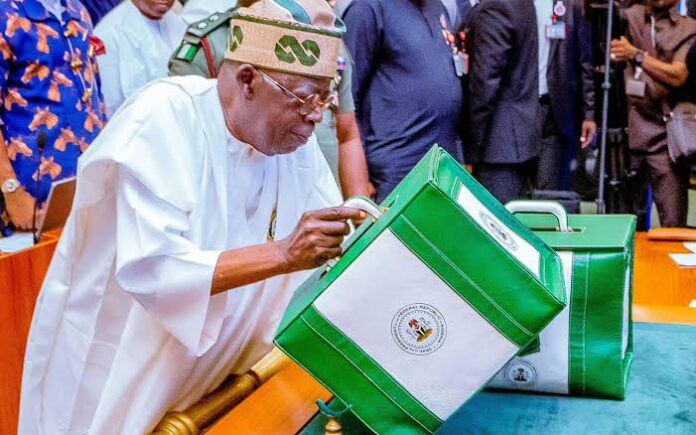Although nearly half way into the 2025 national budget, it has remained a subject of intense controversy like a festering sore that has defied remedy.
It was therefore not surprising that BudgIT raised the alarm over padding or insertion by the National Assembly in the 2025 budget.
The revelation by the civil societ’s tech-driven organisation, focused on public finance transparency, which allegedly involved an unprecedented insertions of 11,122 projects worth N6.93 trillion into the 2025 federal budget by the National Assembly, NASS, thus raising once again concerns about fiscal abuse and political manipulation.
The organisation’s latest analysis paints a troubling picture of Nigeria’s budgeting process, one it says has become a “playground for self-serving political interests”.
Besides, some Nigerians are raising concerns about “unholy alliance” between the executive and the legislature and alleged intimidation of the judiciary, may have been justified as they claim, there is a thin line, if at all, between the arms of government which have made the doctrine of separation of powers as well as checks and balances impossible.
President Bola Tinubu had in February 2025 signed the N54.99 trillion budget into law after it was passed by the federal lawmakers.
However, these insertions, according to a report by BudgIT recently were made with little to no justification, undermining national planning and diverting funds away from essential development priorities.
More worrisome is the allegation that 238 projects, each valued above N5 billion, totalling N2.29 trillion, and another 984 projects worth N1.71 trillion were inserted in the budget.
BudgIT also flagged 1,119 projects within the range of N500 million to N1 billion, together worth over N641 billion, as largely indiscriminate and politically motivated.
The analysis further highlighted that 3,573 of the inserted projects, worth N653.19 billion, are designated for federal constituencies, while 1,972 projects, valued at N444.04 billion, are tied to senatorial districts.
The list includes 1,477 streetlight projects worth N393.29 billion, 538 borehole projects at N114.53 billion, and 2,122 ICT-related projects totalling N505.79 billion. Also, N6.74 billion was earmarked for the “empowerment of traditional rulers”.
BudgIT expressed shock over the fact that 39% of all insertions, 4,371 projects valued at N1.72 trillion, were pushed into the Ministry of Agriculture’s budget, inflating its capital allocation from N242.5 billion to a N1.95 trillion. Other ministries such as Science and Technology and Budget and Economic Planning also saw inflated budgets through insertions alone.
Even more troubling, the group said, is the misuse of smaller federal agencies like the Nigerian Building and Road Research Institute, Lagos and the Federal Cooperative College in Oji River, as conduits for projects outside their core mandates.
It was also highlighted that the Cooperative College was saddled with N3 billion for utility vehicles, N1.5 billion for rural electrification in Rivers State, and N1 billion for solar streetlights in Enugu.
We are of the view that BudgIT’s observations should serve as cautionary notes that should guide future budgeting process in the country.
In addition urge the executive arm of government to strictly ensure that its budget proposals are not tinkered with by the legislature as inserting and re-directing aspects of the budget in such a magnitude.
The NASS ought to make its observations and pass same for appropriate executive action rather than getting directly involved in the budgeting process. Therefore, the legislature should not be seen to abuse its oversight functions.
The doctrine of separation of powers should be at play in handling issues of national significance like the budget.





